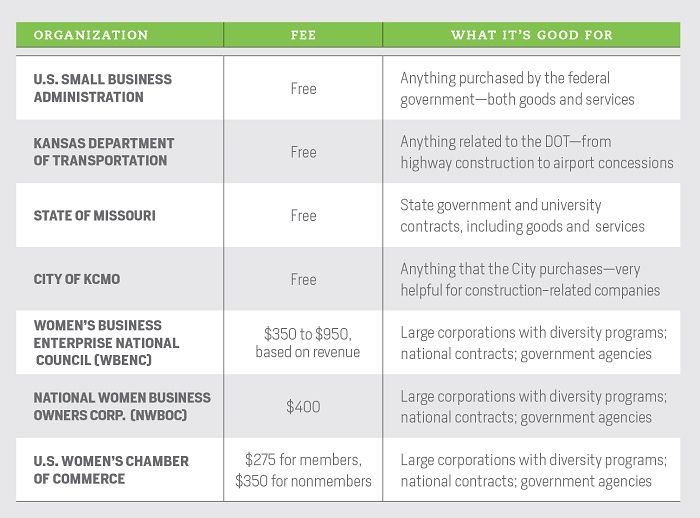It can deliver an important advantage. Just make sure it’s right for you.
I’m a woman, and 51 percent of the business is in my name, so I should apply for certification as a Woman Business Enterprise, right?”
Maybe, maybe not. There are pros and cons to becoming a certified WBE, and it’s better to know what you want to get out of it before you begin the application process—which happens to be very time intensive!
Some companies get certified as woman- owned businesses because they want to provide a service or product to a larger client base or to a specific company or government agency that wants to do business with WBEs. Some WBEs look at it as a form of advertising, and some can charge a premium for holding the certification.
Depending on your industry, WBE certification can be a critical advantage, especially if you operate in a sector where few other companies are certified.
Picking a Certifying Organization
If you decide to get certified, which certification should you apply for? There are actually a number of organizations that certify women-owned businesses, and not all are created equal.
The basic eligibility requirements are the same across the board, but each body adds its own special documents and procedures. The biggest thing to know is that you have to be actively participating in the day-to-day business of the company to become certified.
The type of business that you own and the types of clients that you pursue will help you determine which woman-owned-business certifications will be the most beneficial. If you have a local business, it may be more advantageous to have the city or state certification. But if you sell a product or have a national presence, the WBENC, NWBOC and U.S. Women’s Chamber certifications could be much more beneficial.
When you certify with an organization, it doesn’t just end with the certification. The certifying organizations have a vested interest in promoting your company and ensuring that you have the information and training to be successful. Some certifying organizations provide free training for employees, coaching on business operations and networking with other small business owners, among other services.
Getting Help With WBE Certification
You might wonder if you really need help going through the certification process. It’s just a bunch of forms and copies of documents, right?
At the most basic level, this is correct. I’ve applied for certification with and without help, and it is achievable both ways, but there are fewer hiccups if you work with an attorney or other expert.
Locally, the National Association of Women Business Owners (NAWBO) offers advice straight from other entrepreneurs who have gone through the certification process. That’s where I went for help.
I learned firsthand what the certification meant for business growth and the different types of certification you can obtain. I also met people who could help me go through the process. This personal mentoring and sharing of best practices was critical in my own certification process—and my growth as a business owner.



